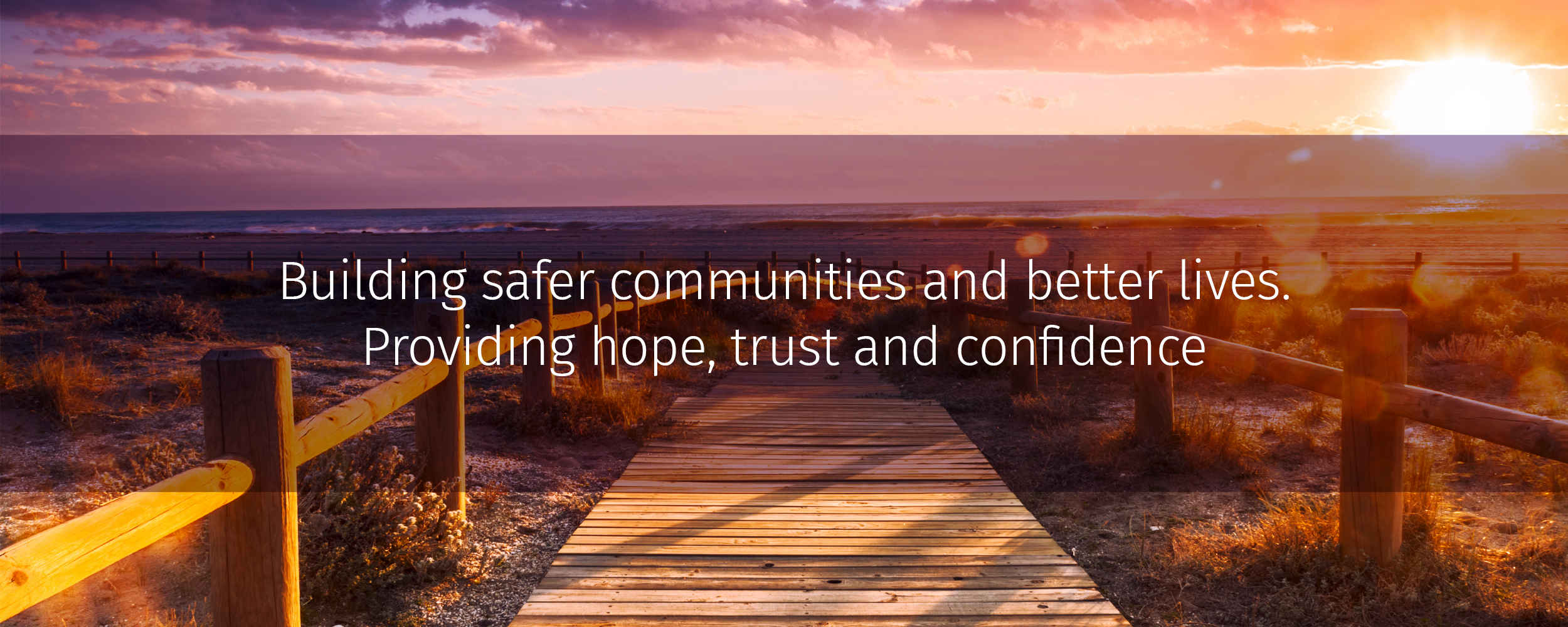Youth/Adolescents
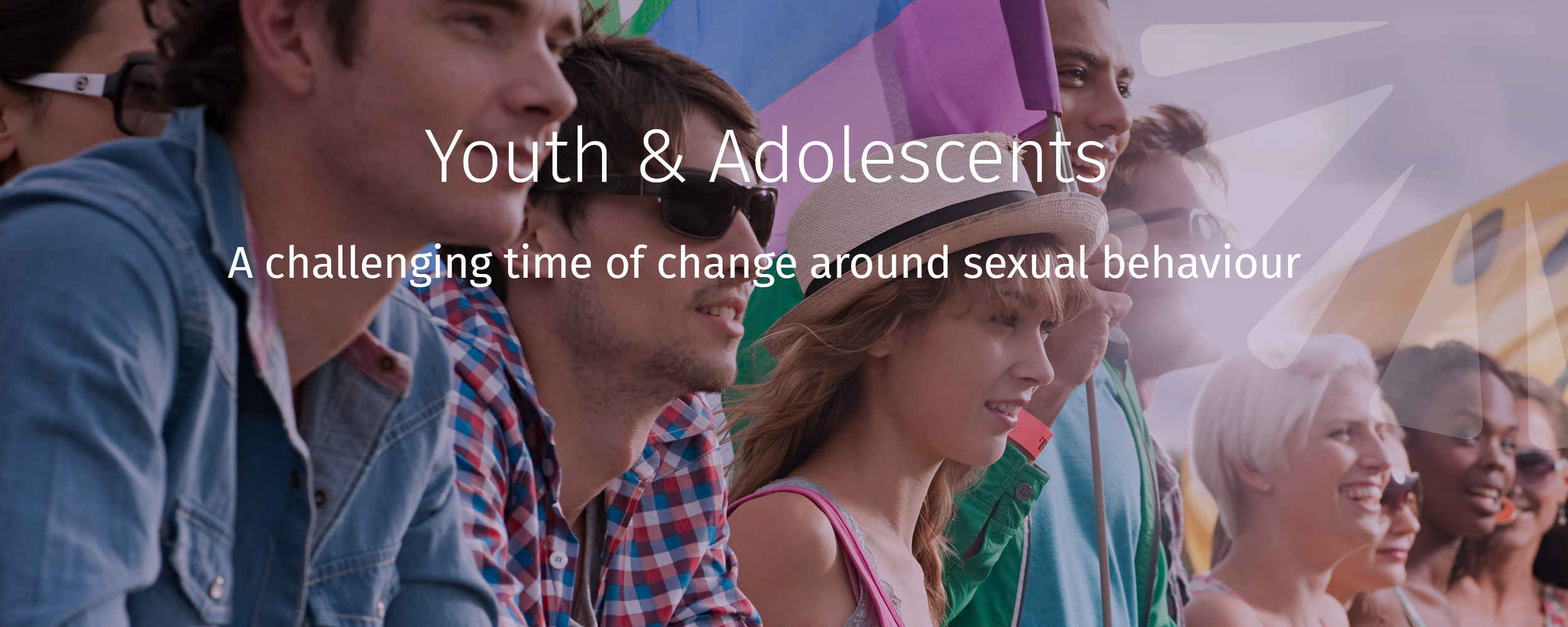
Youth & Adolescents - Adolescence involves a range of healthy and normal sexual behaviour... but when harmful, action is needed to prevent further harm
Safe Network's Whakahuranga Discovery programme is a specialised service for young people aged 13-17 years whose sexualised behaviour is causing concern or is harmful to themselves or others
Developed in New Zealand, our Whakahuranga Discovery programme is based on the latest research and international best practice, while retaining flexibility to be responsive to the strengths and the therapeutic needs of the young person.
Working closely with family, whanau and other professionals ensures the young person has the best possible support to discover new ways of thinking, change behaviours and move on towards a more positive future.
This means that when our youth clients complete counselling at Safe Network, we expect that they:
-
 are able to have safe intimate relationships with others
are able to have safe intimate relationships with others
-
 have fewer or no more incidents of concerning or harmful sexual behaviour
have fewer or no more incidents of concerning or harmful sexual behaviour
-
 gain acceptance as a safe, responsible member of their family, whanau and community
gain acceptance as a safe, responsible member of their family, whanau and community
-
 are living a safe, healthy and balanced life.
are living a safe, healthy and balanced life.
“I had family issues but not now. I was in hell before but now I'm back on my feet. I have hope in myself.”
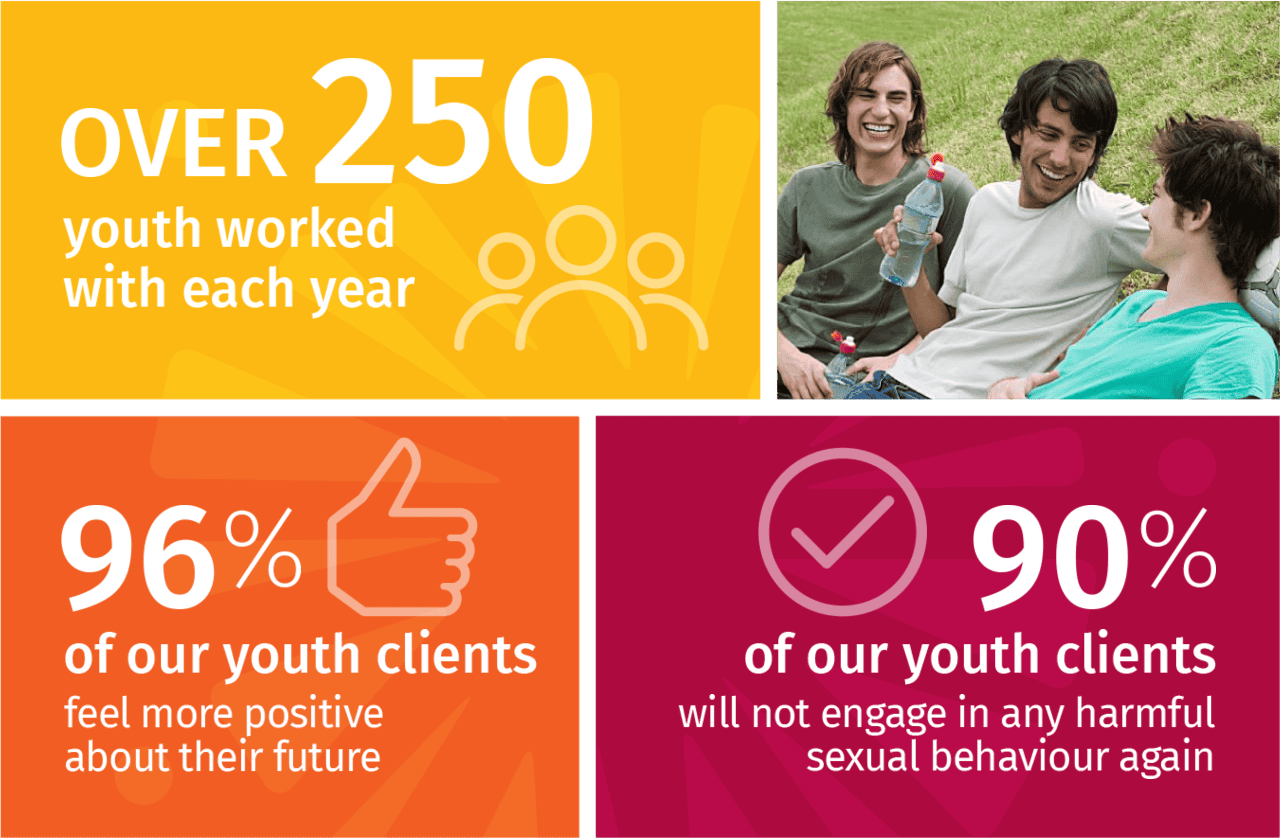
When is sexual behaviour concerning or harmful?
Sexual development is one of many areas of change for adolescents. Adolescents engage in and display a range of sexual behaviour that is healthy and normal for their age. But when it is harmful, action is needed to address the behaviour and prevent further harm.
Stopping concerning and harmful sexual behaviour in adolescents may require specialist help that directly addresses their age-appropriate and developmental needs.
- it is targeted at younger children or anyone more vulnerable
- it is secretive
- it is aggressive, forceful, manipulative or threatening
- it is not consensual
- it continues despite requests to stop
- the young person appears driven to engage in sexual behaviour regardless of whether or not they will be punished or reprimanded
- others complain about the young person's sexual behaviour or are adversely affected
- it increases in frequency, intensity or intrusiveness over time
- it is directed at adults who feel uncomfortable about it
- it is targeted at animals
- it includes using electronic technology to make, access or distribute images and videos of concerning and harmful sexual behaviour involving themselves or others
- verbal or physical expressions of anger precede, follow or accompany the sexual behaviour.
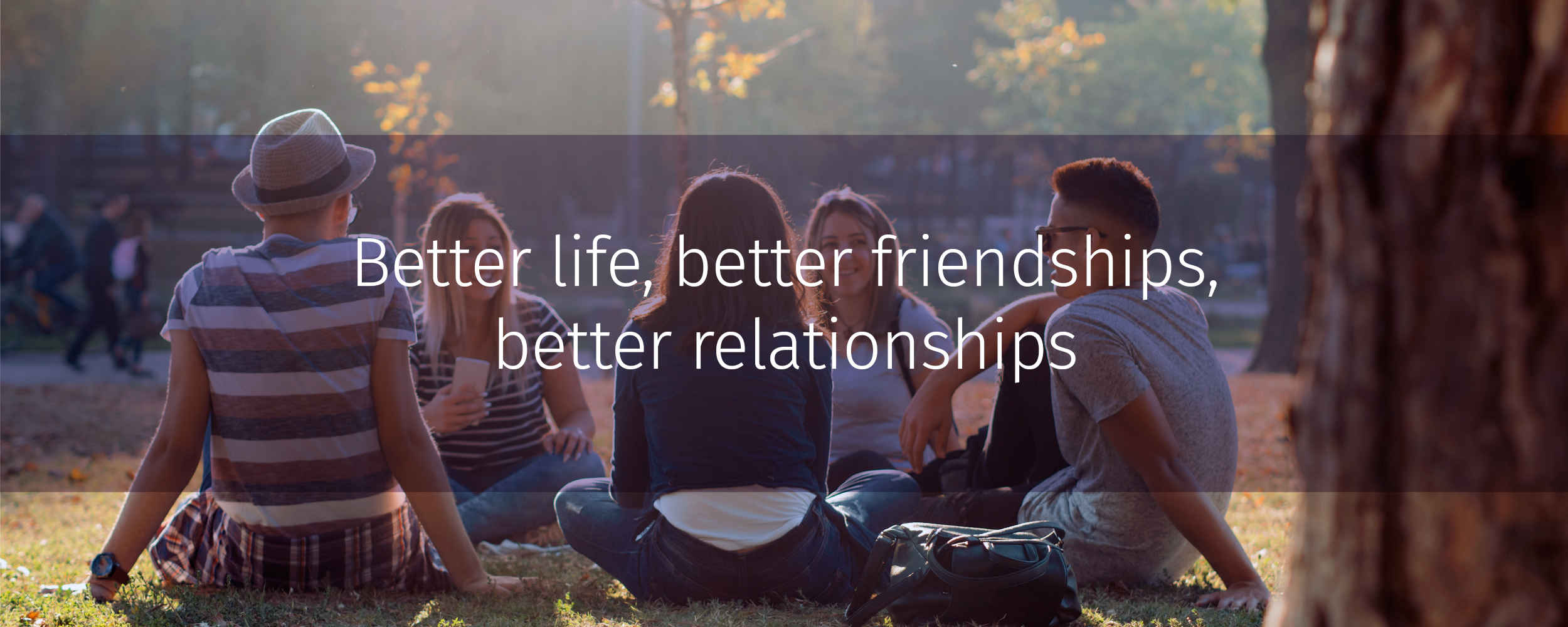

How can Safe Network help?
Safe Network's Whakahuranga Discovery programme is designed specifically for youth aged 13 to 17.
A flexible, strengths-based programme, it can be adapted for each young person to best reflect their developmental stage, culture and gender, as well as their preferred communication and learning styles.
The flexibility of Safe Network's Whakahuranga Discovery programme enables us to provide services to:
- boys
- girls
- gender diverse youth
- neuro-diverse youth
- youth with special needs
- youth from different cultural and language groups.
Our multi-disciplined clinical team includes art therapists, counsellors, psychologists, psychotherapists and social workers, who utilise a wide range of techniques and therapeutic approaches to engage and support the young people they work with.
Because the Whakahuranga Discovery programme is tailored to the individual young person's needs, it can vary in duration and focus. Some may only require a brief intervention that focusses on strengthening their environment and helping the adults in their life support positive, safe behaviours. Others may need a more intensive programme of one-on-one therapy, group sessions and family sessions, typically up to twelve months in duration.

“At Safe Network we are committed to respecting the privacy of our clients.”
Within the Whakahuranga Discovery programme Safe Network can offer the following targeted services:
What is the process?
At Safe Network we want to make sure young people get the help they need.
Safe Network's Whakahuranga Discovery programme is open to self-referrals or referrals from government agencies, community organisations, schools, health professionals, parents and caregivers. Oranga Tamariki fully funds a fixed number of places on the programme and there is no charge for the young person who takes one of these places, their family or the referrer. If all funded places are filled, then there is the choice of being waitlisted until a funded place becomes available or paying services directly.
Pricing for Youth Services Information SheetThe first step in the process is for those wanting to refer a young person to complete a referral form.
Youth Services Referral Form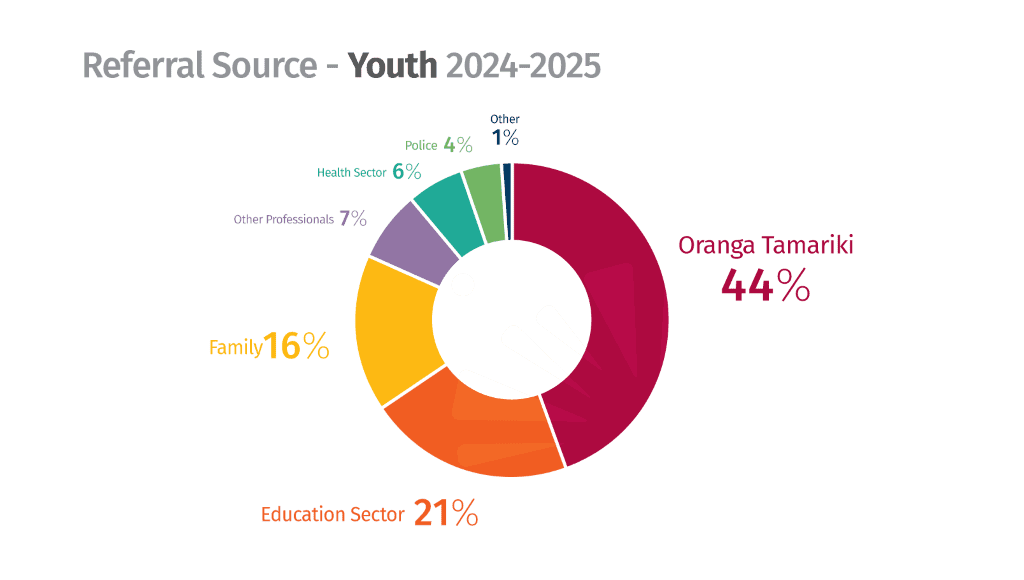
“The positivity I feel about my future now is more than you can imagine.”
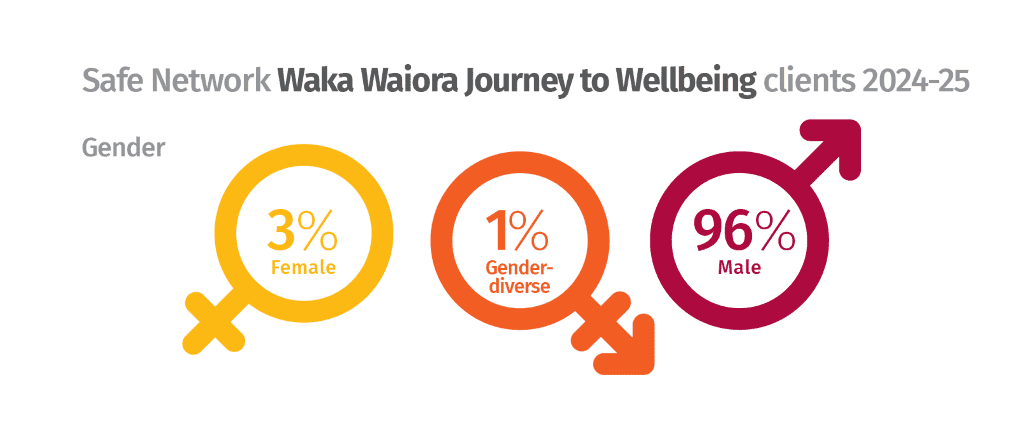
Once we receive the referral form, we undertake an initial review to identify whether Safe Network's services are right for the young person, and how best we can help meet their needs. Before we can start working with a young person, we require that consent is provided by them or an appropriate adult acting on their behalf.
Consenting to Services for Youth Clients Information SheetWhere the needs are less acute, the young person may be accepted directly into our brief intervention service that focusses on their environment and helping support positive and safe behaviour choices.
For young people with a higher level of need, we undertake a more comprehensive assessment, looking in more detail at information about their history and the sexual behaviour that is causing concern. The assessment will typically cover a range of areas including personality traits, their strengths, resources available to support them, the current issues and barriers they face, the effects and impact of their sexual behaviour on themselves and others, the safety of everyone concerned and the overall needs of the family, support network and community. Along with the young person themselves, we also engage whanau, family members, caregivers and other professionals in this process.
"We achieve results by providing a safe environment that establishes trust."
The assessment process can vary depending on the client but usually involves the following steps:
STEP 1 - Two or three interviews with the young person and key family members or support people
![]()
STEP 2 - Collection of information and reports from other agencies or professionals who may be involved e.g. Oranga Tamariki, Police, other professionals
![]()
STEP 3 - Completion of questionnaires by the young person and their adult family members or other support people.
Once the assessment process is complete, a detailed and confidential report is provided, confirming whether or not Safe Network's service are suitable for the young person and recommending next steps.
Subject to confidentiality provisions, a copy of this assessment report and recommendations will be sent to the referring agency or other appropriate people.
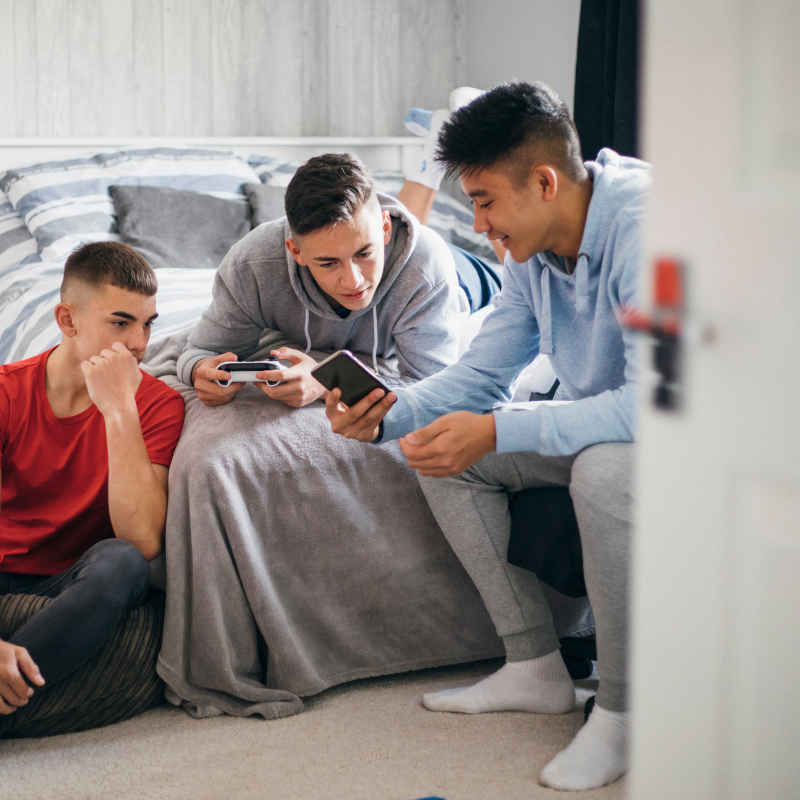
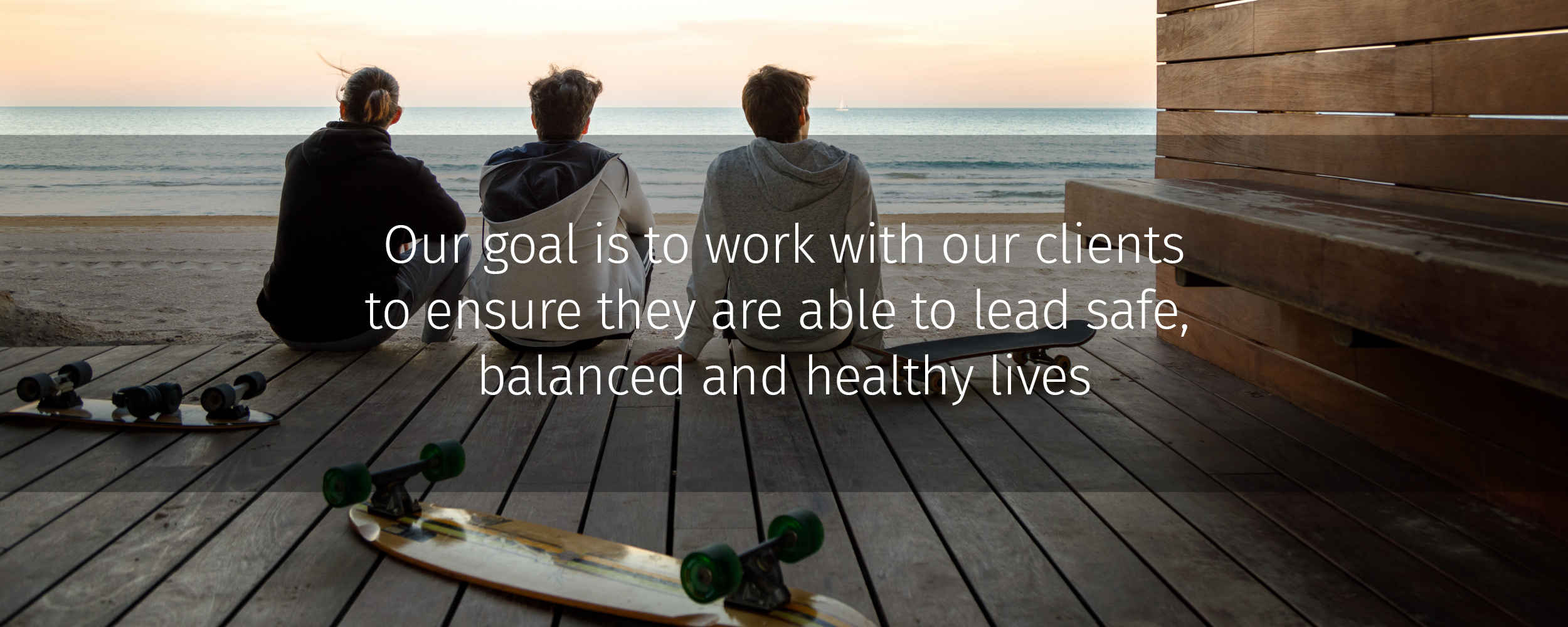

If our recommendation that the young person takes part in our Whakahuranga Discovery programme is accepted, they will be assigned one of our specialist clinicians to provide therapy and manage their progress through the programme. The duration of therapy for our youth clients varies based on each young person's needs, but is typically around twelve months.
Therapy generally includes:
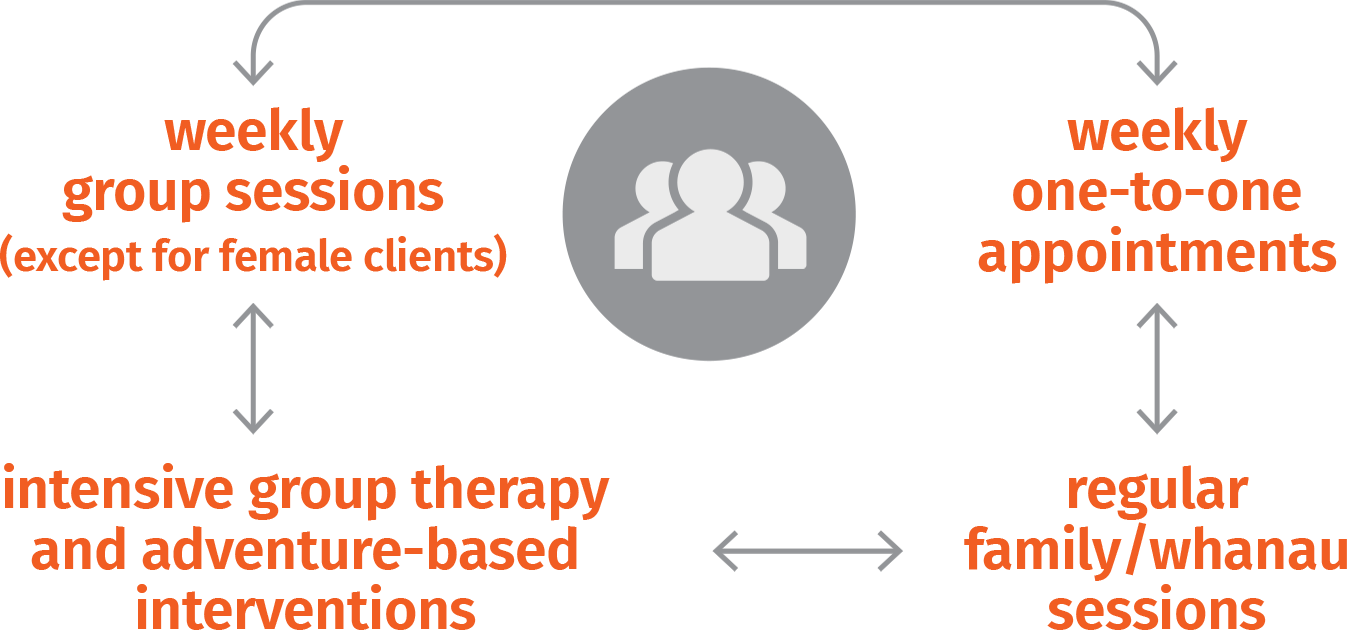
Our goal is to work with our youth clients so that when they complete their therapy they are able to lead safe, balanced and healthy lives with positive connections to family/whanau and the wider community.
Youth Group Therapy Information for Clients
Our focus is all about changing lives.
Individuals that attend Safe Network will be allocated to a primary clinician for the duration of their intervention.
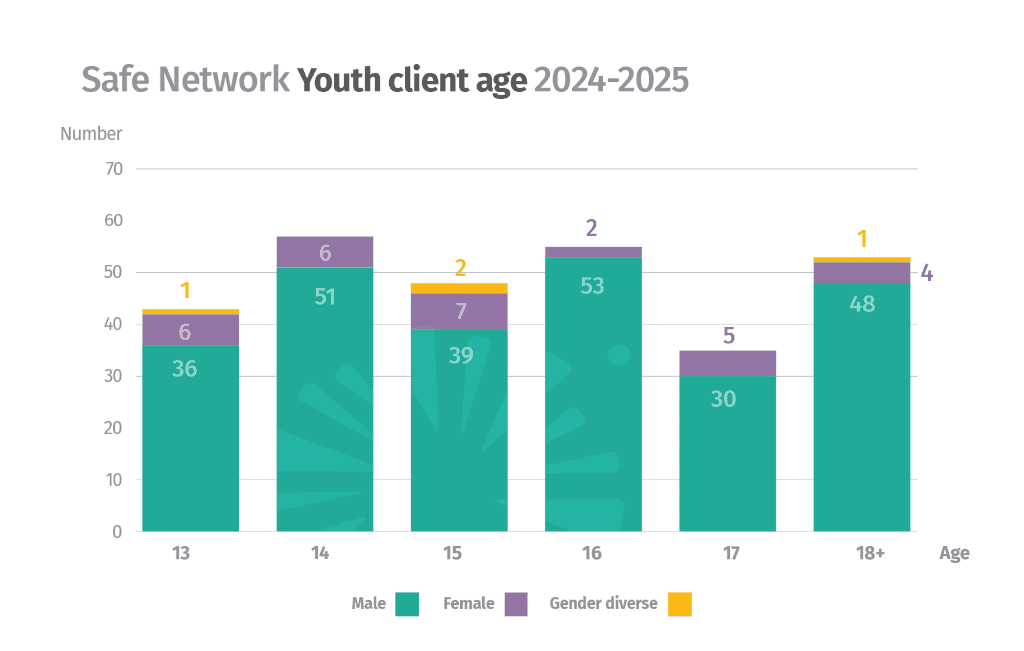
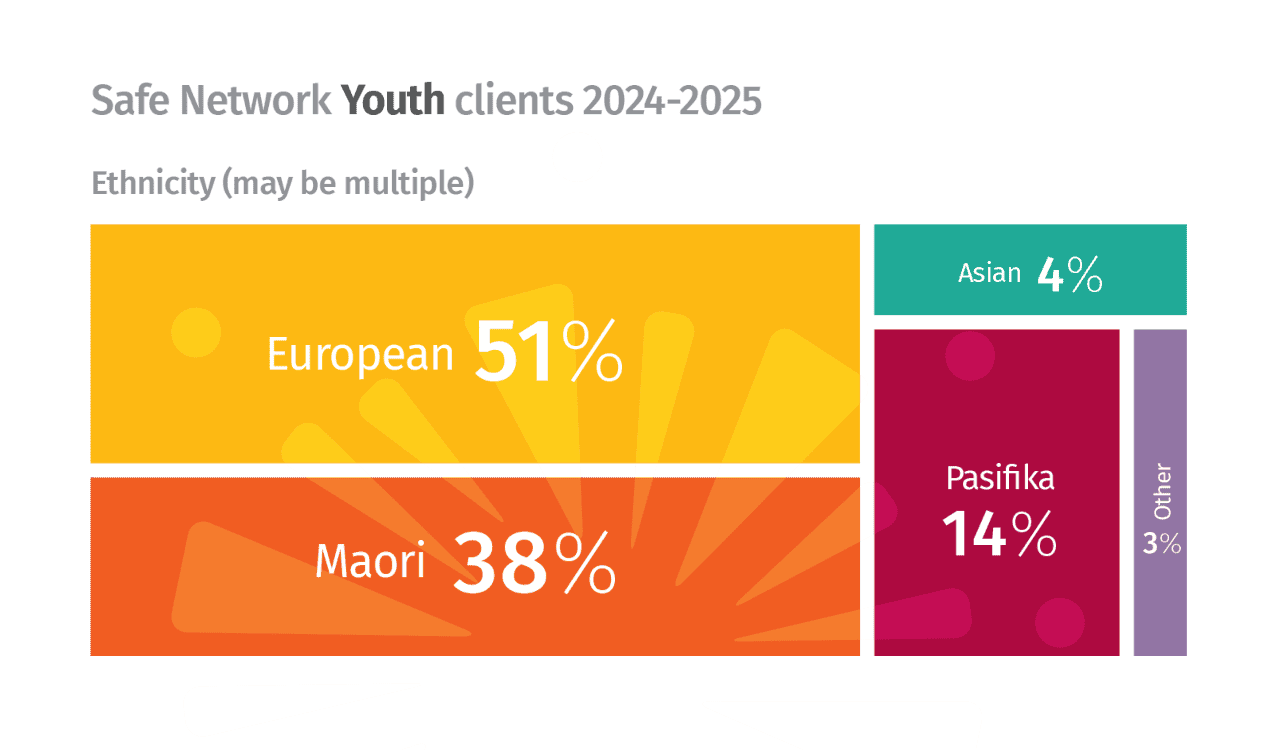
Making a difference
Jack
Jack*, a 14-year-old male was referred to Safe Network for harmful sexual behaviour. READ MORE Living apart from his parents in a secure facility, his relationships with them had become increasingly conflict-ridden and estranged despite their efforts to stay connected to him. Recognising the importance of strong family support in helping Jack not engage in any harmful sexual behaviour in future, Safe worked separately with both his parents and then with him in order to help with family reconciliation. As a result, Jack initiated a meeting with his parents where, accompanied by a Safe Network support person, they reconnected and the relationship began to be restored. Jack's parents were able to support Jack's therapy until he successfully completed. READ LESS
Wiremu
Wiremu*, a 15-year-old Maori male was referred to Safe Network following incidents of harmful sexual behaviour. READ MORE Wiremu's therapy was based on Te Ao Māori, including the exchange of whakawhānaungatanga at each session and the exploration of Te Whare Tapa Whā as a holistic model for his wellbeing. Wiremu responded positively to this approach, which enabled him to connect more fully with his culture, further explore his values, feel better connection with others and plan for a positive future. Wiremu is now wanting to go into social work and is working towards this. READ LESS
Leo
Leo*, a 16 year-old male with mild intellectual disability, depression and anxiety issues, started at Safe Network worried about the deterioration in his relationships with his family and his on-going struggles at school. READ MORE Leo's therapist worked with him, his family and his Oranga Tamariki social worker in a holistic way. As a result, Leo's ability to manage his emotional responses and behaviours improved, he was better able to communicate with others, his performance at school improved and he successfully learned to drive. Leo completed his therapy with more confidence in himself, better relationships with his family and feeling he could succeed in life. READ LESS
FAQs
Do Government agencies such as Oranga Tamariki need to be involved in making a referral to Safe Network?
No. We accept referrals directly from members of the public or other agencies and professionals. We would only involve Oranga Tamariki if we were to raise a notification of concern as per our Child Protection PolicyIs this service confidential?
Safe Network will keep all client information confidential except where you have consented for it to be released to a third party, where we are required to disclose it by law or where we raise a notification of concern. Refer to our Privacy Policy - Youth and our Child Protection Policy. We will only talk to people you have given us consent to contact.Are there online options?
Yes. Although face-to-face appointments are preferred, we can offer online appointments where appropriate.
Online Services for ClientsDo you include families when you work with youth?
Yes, working with families is a key part of a youth's intervention. The extent of family work will depend on the youth's age, needs and the commitment of the family.Can we get appointments outside of school or work hours?
Yes, subject to availability.Does concerning or harmful sexualised behaviour mean a young person has been sexually abused?
No. Concerning or harmful sexual behaviour in young people can result from one or more of a wide range of contributing factors, with sexual abuse being just one of these.What are your requirements for consent for your service?
Informed consent is a legal requirement for all health services. Depending on their age, youth are generally competent enough to give informed consent for themselves, but where they aren't, it requires an appropriate adult to consent on their behalf. More information about consenting for youth services is provided in the following information sheet.
Consenting to Services for Youth Clients Information SheetDoes your service work?
Yes. Research shows that 90% of adolescents who complete a Safe Network programme will not engage in any further harmful sexual behaviour.How much will it cost?
Current pricing for youth services (incl. GST) is provided in the following information sheet.
Pricing for Youth Services Information Sheet